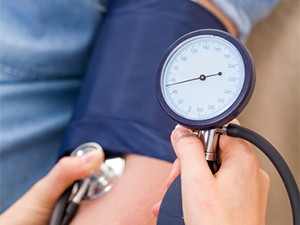
A collaborative study between the University of Cape Town and Oxford University has shown text message reminders can help people with high blood pressure to manage the medical condition better.
The study of over 1 300 adults with high blood pressure in the Cape Town area compared text message reminders and interactive text messaging to a control group receiving standard care.
According to the Heart and Stroke Foundation SA, about one in three South African adults, 15 years or older, suffers from high blood pressure. It is one of the leading causes of heart attacks, strokes, kidney failure and premature death.
The National Committee on Confidential Enquiries into Maternal Deaths says South African pregnant women have among the world's highest rates of high blood pressure, which is also known as hypertension.
It adds that one in 10 pregnant women, especially those in rural areas, have high levels of high blood pressure leading to preeclampsia, a leading cause of death in most pregnant women in SA.
Major
"High blood pressure is very common worldwide and in South Africa. It is a major risk factor for stroke or heart attack," says professor Naomi Levitt, from UCT's Department of Medicine and the Chronic Diseases Initiative for Africa.
"Most people will need to take lifelong medicine to decrease their blood pressure and, therefore, their risk of poor health outcomes. However, it is well-known that many people struggle to take their prescribed medicines regularly."
"Two common issues are not turning up to collect medicine - so running out - or forgetting to take tablets," says professor Andrew Farmer, from Oxford's Department of Primary Health Care Sciences. "We knew that text messages had worked to support people with HIV/Aids to stick to their treatment and improve their health as a result. We wanted to see whether the messages could work for blood pressure treatment in a low-resource community."
The Cape Town area chosen for the trial is a working-class community where almost two-thirds of households have a monthly income of less than R3 500. The clinic that serves the area provides free health services and medication.
Participants were randomly split into three equal-sized groups. All participants received written information about high blood pressure and healthy living. The first group then received weekly messages at a time and in the language they chose (Afrikaans, English, or isiXhosa).
The messages, designed in consultation with people with high blood pressure and healthcare workers, encouraged people to collect and take their medication and provided information about high blood pressure, its treatment and available clinic services. Extra messages were sent to remind people when medicine was ready for collection or when they had a clinic appointment.
The second group received the same text messages but were able to interact with the automated service by sending a free "please call me" to change or cancel appointments or to change the language or time of the messages. The third group received standard care.
Great potential
Health workers used mobile phones linked to blood pressure measuring devices to collect health information about patients, and text messaging was managed automatically using open source software and a low-cost system developed by UCT graduates working in Oxford's Institute of Biomedical Engineering.
After 12 months, all three groups had reduced blood pressure. However, those who had received text messages were more likely to have achieved a controlled blood pressure. Those who had reminders were also more likely to have taken their medicine at least 80% of the time - almost two-thirds of those getting information messages reached that standard compared to just under half of those receiving standard care.
"There is a great potential for mobile phone technology to help with the management of chronic diseases worldwide through automated messaging to the right person at the right time," says professor Lionel Tarassenko from Oxford's Institute of Biomedical Engineering. "With this study, we have demonstrated how this could be done in an area where large numbers of people are at risk because of uncontrolled blood pressure."
The team says further research into the optimum frequency and content of messages, and the costs of operation, is needed.
Share